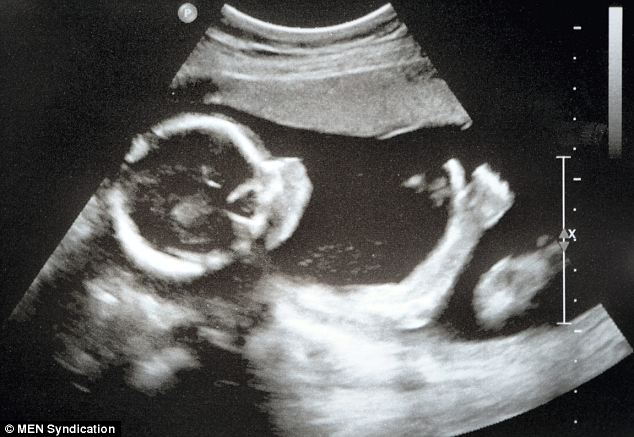Oklahoma Attorney General Mike Hunter defended a state law to protect unborn babies from abortion this winter, saying there is no right to abortion in the state constitution.
The Oklahoman reports Hunter’s office recently submitted arguments in a case involving a state ban on dismemberment abortions.
The Oklahoma Unborn Child Protection from Dismemberment Abortion Act bans dismemberment abortions that tear nearly fully formed unborn babies limb from limb while their hearts are still beating. The method is a common second-trimester abortion procedure. Abortion practitioners who violate the law could face up to two years in prison as well as a $10,000 fine.
Approximately 350 unborn babies were aborted in this way in 2018 in Oklahoma, according to the AP.
The Tulsa Women’s Clinic abortion facility and the Center for Reproductive Rights are suing to overturn the pro-life law. The case currently is in front of the Oklahoma Supreme Court.
Last week, Hunter’s office told the court that the so-called right to abortion does not exist in the state constitution, and such cases should be challenged at the federal level, according to the report.
“Oklahoma’s founders never intended nor created a right to abortion, nor have Oklahoma’s people ever voted to create such a right,” the attorney general’s office argued.
Here’s more from the report:
The [abortion] clinic argued that the state’s high court “has repeatedly recognized that the due process protections within the Federal Constitution and thus the Oklahoma Constitution protect a woman’s decision to terminate a pregnancy prior to viability. … At a minimum, Oklahoma courts apply the undue burden standard in determining the constitutionality of a state law that interferes with the right to abortion.”
The Oklahoma attorney general’s office countered that a complaint involving a federal right should be heard in a federal court.
“In the past, (the Oklahoma Supreme) Court has countenanced suits against abortion laws even though they were brought solely pursuant to the Oklahoma Constitution, effectively substituting state law claims with federal claims and applying federal law.
LifeNews depends on the support of readers like you to combat the pro-abortion media. Please donate now.
“This approach is mistaken, and the Court should correct course by requiring plaintiffs who seek to vindicate federal rights to bring federal claims.”
In November, the Oklahoma Supreme Court temporarily blocked the state from enforcing the law. Now, it is considering arguments about whether to completely overturn the law.
Hunter’s office argues that the abortion procedure subjects “unborn children to more cruelty than we allow for death row inmates.”
As the Daily Oklahoman reported in October, the attorney general said Oklahoma has “important interests in prohibiting cruel and inhumane practices, in promoting ethical behavior in the medical profession, and in advancing the cause of a humane society.
“But the harm to the State pales in comparison with that faced by the unborn. The past four years, hundreds, if not thousands, of unborn Oklahomans have been torn apart while alive because of the ongoing injunction. If this law is (again) enjoined, that tragedy will continue,” Hunter’s office continued.
Meanwhile, abortion activists contend that the law subjects “women to increased medical risk, emotional harm, and financial and logistical burden.”
Gov. Mary Fallin signed the law in 2015, but pro-abortion groups immediately challenged it in court. In July, Judge Cindy Truong became the first judge in the country to uphold a dismemberment abortion ban.
Oklahoma was the second state in the nation to protect unborn children from dismemberment abortions that tear them apart limb from limb. Kansas became the first in 2015 when Gov. Sam Brownback signed similar legislation prohibiting dismemberment abortions in his state.
Since then, 12 states have passed similar legislation. Most of the laws are being blocked in court.








